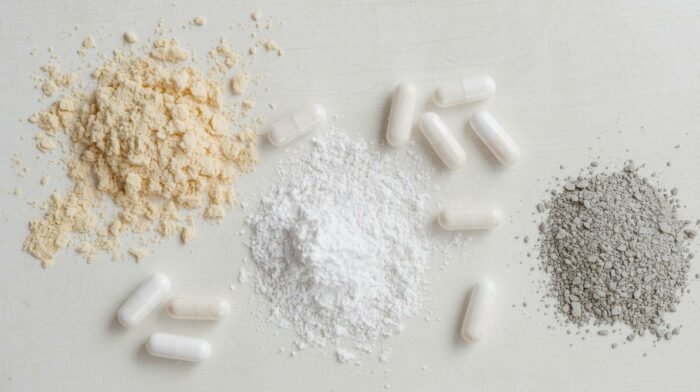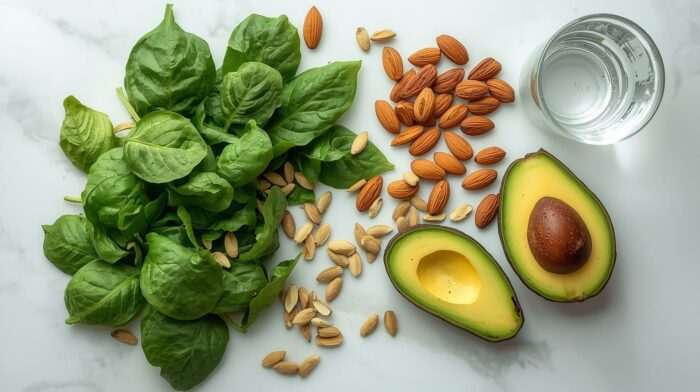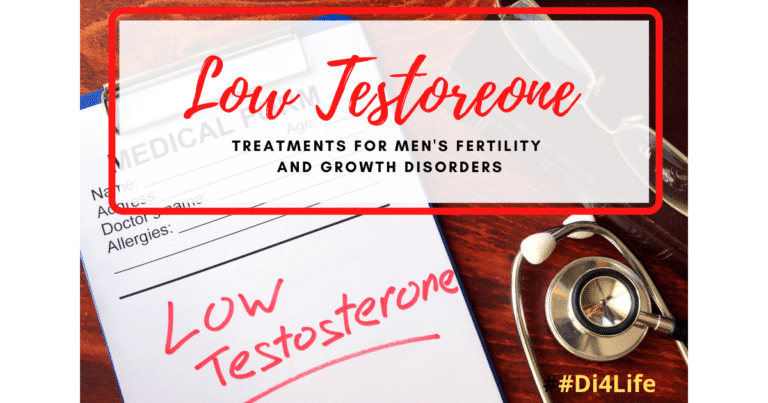I didn’t realise taking magnesium for overactive bladder (OAB) was even a thing until yesterday. True story — I’ve struggled with this condition for ages, and it’s led to some pretty embarrassing moments that I’d rather keep to myself.
Yesterday, I went out for a few pints at my local pub and noticed something strange — I hadn’t needed to go for a wee once since arriving. I’d drunk 4 pints of beer, and usually, I’m running to the bathroom every half hour or so. But this time, nothing.
Then it hit me: I’d taken my BiOptimizers Magnesium Breakthrough capsule before dinner. I’ve used this supplement on and off for years but recently decided to start taking it more consistently. This was my first capsule from a new bottle, and I didn’t think much of it at the time — until this happened.
Maybe it was just coincidence, but it made me wonder — could the magnesium have been why I wasn’t feeling the need to pee so much? A quick Google search later, and there it was: magnesium had actually been medically tested for overactive bladder (NHS guide on OAB).
Naturally, I had to dig deeper. Here’s what I found.
About Taking Magnesium For Overactive Bladder

So, Overactive bladder (OAB) isn’t just a bit annoying; it can totally disrupt your day-to-day life. Those constant trips to the bathroom and that sudden, urgent need to go—yep, it can make outings feel like a marathon rather than a sprint.
“Speaking of running — the number of times I’ve had to dash off because of this condition is honestly exhausting.”
I’d always assumed hormones like vasopressin — which control how much we urinate — were the main factors. A diet with enough salt and hydration can help balance this, but I never imagined that Magnesium, something so simple, could play an even bigger role.
Why Take Magnesium?
Magnesium plays a star role in our bodies, helping with everything from muscle function to nerve signals. It seems that bladder health could also be on its roster.
Researchers are buzzing about how Magnesium might help calm an overactive bladder by relaxing bladder muscles and reducing spasms that make your bladder, well, overactive.
But, does it really work? That is the big question.
Some studies suggest that magnesium can be helpful in managing OAB symptoms. One study saw people with OAB experiencing fewer bathroom dashes and a lot more peace once they introduced magnesium supplements into their diet.
Hearing straight from the experts makes a difference. Urologists and health pros have been exploring magnesium as a supplement to traditional treatments for OAB.
The advice often comes down to this: while it may not be a magic bullet, adding magnesium could offer some bladder relief, especially when paired with other treatments.
Now, before reaching for the magnesium, chat with your healthcare provider. They’ll help figure out if it’s a good fit for you, the right dosage, and how it may mesh with other treatments.
Too much magnesium can cause its own set of troubles, like diarrhea or cramping, so a bit of caution goes a long way. I’ve heard from folks who have tried it out.
Some folks who added magnesium into their routine noticed less bathroom urgency and fewer nighttime wake-ups. It’s not a blanket solution for everyone, but for some, it’s a handy helper in the toolkit against OAB.
So, could magnesium be the little helper you need for your bladder woes? Consider giving it a shot, but make sure you do it the safe way—under a doctor’s guidance and as part of a balanced approach to managing overactive bladder.
What Is Overactive Bladder (OAB)?
Overactive bladder isn’t just a mild inconvenience — it can seriously disrupt your life. The constant urge to urinate, sudden leaks, and waking up multiple times a night can make simple activities like going out or even sleeping through the night feel exhausting.
While there are various causes — such as nerve misfires, muscle spasms, and hormonal changes — researchers are now looking more closely at how nutrients, including magnesium, could play a role in calming the bladder.
How Magnesium Supports Bladder Control

Meet magnesium — the mighty mineral. It plays a crucial role in over 300 biochemical reactions in the body (NIH magnesium fact sheet), supporting muscle relaxation, nerve signalling, and electrolyte balance.
When it comes to OAB, magnesium seems to help in two main ways:
- 🧠 Regulating Nerve Function: It helps prevent overactive nerve impulses that can trigger bladder contractions.
- 💪 Relaxing Bladder Muscles: Magnesium acts as a natural muscle relaxant, helping reduce spasms in the bladder wall that cause sudden urgency.
Essentially, magnesium tells your bladder to chill out.
What the Research Says
While magnesium isn’t yet a mainstream treatment for OAB, the science behind it is promising.
✅ A 1998 study published in the British Journal of Obstetrics and Gynaecology found that women who took magnesium hydroxide for four weeks experienced fewer urinary incontinence episodes than those taking a placebo (source).
✅ Another small clinical trial in the Journal of Urology reported that magnesium supplements reduced nighttime urination (nocturia) and improved sleep quality in people with OAB (source).
These studies suggest magnesium may help reduce urgency and frequency — though more large-scale research is still needed.
Expert Opinions
Urologists and health professionals generally agree that magnesium isn’t a cure-all, but it may offer extra support alongside other treatments.
Dr. Brian Staskin, a urologist and bladder specialist, has noted that magnesium can help relax smooth muscle tissue — the kind that makes up the bladder wall. This effect could explain why some people experience fewer symptoms after supplementing.
Real-Life Experiences
Beyond the science, many people share positive results anecdotally. Some report:
- Fewer urgent bathroom trips during the day
- Less nighttime urination (nocturia)
- A generally calmer bladder
For me, the difference was noticeable — especially after that night at the pub! Of course, everyone’s body chemistry is different, but it’s encouraging to see a simple supplement potentially make such a difference.
How to Take Magnesium for Overactive Bladder
If you’re considering giving magnesium a try, here are a few tips:
- Check with your healthcare provider first – Magnesium can interact with medications, especially those for blood pressure or heart conditions.
- Choose the right type – Forms like magnesium glycinate, citrate, or malate are better absorbed and gentler on the stomach than oxide or hydroxide.
- Start with a low dose – Around 200–400 mg per day is typical, but your doctor can guide you.
- Stay hydrated – Magnesium works best when you’re not dehydrated.
- Be patient – It may take a few weeks to notice results.
⚠️ A quick warning: Too much magnesium can cause diarrhea, cramping, or nausea. Always follow recommended doses.
Best Types of Magnesium For Bladder Health

Not all magnesium supplements are created equal. Some forms are better absorbed and gentler on the stomach.
Here’s a quick breakdown:
- Magnesium Glycinate: Highly bioavailable and gentle on digestion — great for long-term use.
- Magnesium Citrate: Works well but can have a mild laxative effect.
- Magnesium Oxide: Common and inexpensive, but not as well absorbed.
- Magnesium L-Threonate: Crosses the blood-brain barrier — good if anxiety or poor sleep also trigger your OAB.
“Personally, I use BiOptimizers Magnesium Breakthrough, as it includes several forms in one capsule (check it out here).”
How Much Magnesium to Take
Always talk to your healthcare provider before starting any supplement.
That said, general guidance suggests:
- Women: 310–320 mg per day
- Men: 400–420 mg per day
If you’re supplementing, start small — around 100–200 mg daily — and see how your body reacts. Taking too much magnesium can lead to diarrhea or cramping.
I personally take 1 capsule before I eat a substantial meal – at breakfast this would be with something like a bowl of porridge or basically any meal I have for dinner.
Other Natural Ways to Support Bladder Health

While magnesium can help, it’s best used as part of a broader approach. Here are a few simple tips that make a difference:
- 🚫 Cut back on caffeine and alcohol – both can irritate the bladder. (R)
- 💧 Stay hydrated (but not overhydrated) – concentrated urine can make symptoms worse.
- 🧘 Try pelvic floor (Kegel) exercises to strengthen bladder control.
- 🍌 Add more magnesium-rich foods – spinach, pumpkin seeds, almonds, and avocados are all great choices. (NIH guide).
- 💤 Reduce stress and improve sleep – stress hormones can increase bladder sensitivity. (NHS lifestyle guide).
Final Thoughts – Could Magnesium Be the Missing Piece?
If you’re struggling with an overactive bladder, magnesium might just be the gentle helper your body needs. My own experience — combined with the research I found — suggests that magnesium may help calm the bladder, reduce urgency, and make life feel much more manageable.
But remember: everyone’s body is different. Always check with your healthcare provider before starting any new supplement.
Who knows — that simple magnesium capsule before dinner might just become your eureka moment, too.
After years of frustration and countless bathroom breaks, discovering magnesium’s potential benefits has genuinely surprised me. Whether you get it from food or a supplement like BiOptimizers Magnesium Breakthrough, it could make a world of difference.
Bonus: Magnesium-Rich Foods to Support Bladder Health
If you prefer the natural route, here are some magnesium-rich foods you can add to your diet:
- Spinach and leafy greens
- Pumpkin seeds
- Almonds and cashews
- Avocados
- Dark chocolate (in moderation!)
- Bananas
These can help maintain healthy magnesium levels and support your bladder naturally.
Related Posts:
- Can Magnesium Help Dissolve Kidney Stones?
- 7 Incredible Benefits of Magnesium for Digestion and Gut Health
- What Are the Signs and Symptoms of Low Magnesium?
- Magnesium For Blood Sugar Support: Is This Really A Thing?
- Magnesium Breakthrough Review
- How Often Should a 40 Year Old Man Urinate?
Q: Can magnesium really help with an overactive bladder?
A: Research suggests that magnesium can relax bladder muscles and calm nerve impulses, which may help reduce urinary urgency and frequency in some people.
Q: What type of magnesium is best for bladder control?
A: Magnesium glycinate or citrate are great options due to their high absorption and gentle effects.
Q: How long does it take for magnesium to help with OAB symptoms?
A: It varies, but most studies and anecdotal reports suggest noticeable improvements within 2–4 weeks of consistent use.
Q: Can magnesium interact with medications?
A: Yes — magnesium can affect how some medications are absorbed. Always check with your doctor before adding supplements.











